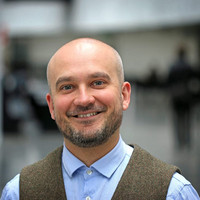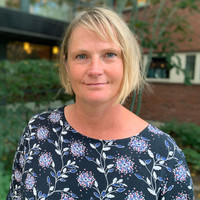Food at KTH Africa Days
KTH FOOD, Blue Ocean Seafarms and EPIC Africa
During KTH Africa Days, collaboration in and with Africa for KTH's faculty members and students was highlighted. On Tuesday the 16th the conference focused on food systems with two seminars focusing on ongoing food projects and potential opportunities.
KTH FOOD and Blue Ocean Seafarms at KTH Africa Days
KTH FOOD Director Francisco Vilaplana and Blue Ocean Seafarms Associate Professor Fredrik Gröndahl, KTH held a lunch seminar focusing on ongoing and potential collaborations between KTH and African countries that contribute to the sustainable transformation of food systems.
Vilaplana outlined KTH FOOD centre’s main research and impact areas: functional food products and health, value chain management and consumption, sustainable food production and circular food processes. Identifying and establishing collaborations with similar initiatives in African countries benefits mutual aims. KTH FOOD’s strategy is to integrate not only technical solutions but also the environmental impact, social responsibility, and business model aspects into a sustainable and healthy food systems transformation.
Gröndahl continued the seminar with a presentation about Blue Ocean Seafarm in Kenya where seaweed cultivation is being developed. The project is a collaboration between researchers at KTH and KMFRI (Kenya Marine and Fisheries Research Institute) with the aim of developing a more sustainable and profitable seaweed and to increase the profit margins of local seaweed cultivators by facilitating direct contact with potential customers in the Nordic countries.
EPIC Africa – Sustainable Water, Energy & Food Pathways for Sub-Saharan Africa
In the afternoon, Professor Viktoria Martin, KTH and researcher Francesco Gardumi, KTH discussed the project EPIC Africa – Sustainable Water, Energy & Food Pathways for Sub-Saharan Africa.
EPIC Africa is a Horizon Europe project that sets out to support sustainable development in sub-Saharan Africa (SSA) by creating new knowledge on development pathways for ensuring clean water, clean energy access, and secure food supply for the future. Using the cases of the Volta and Tana river basins, the EPIC Africa output will define actions to sustainably couple energy, water and food systems that are robust to climate change and socio-economic uncertainties.




